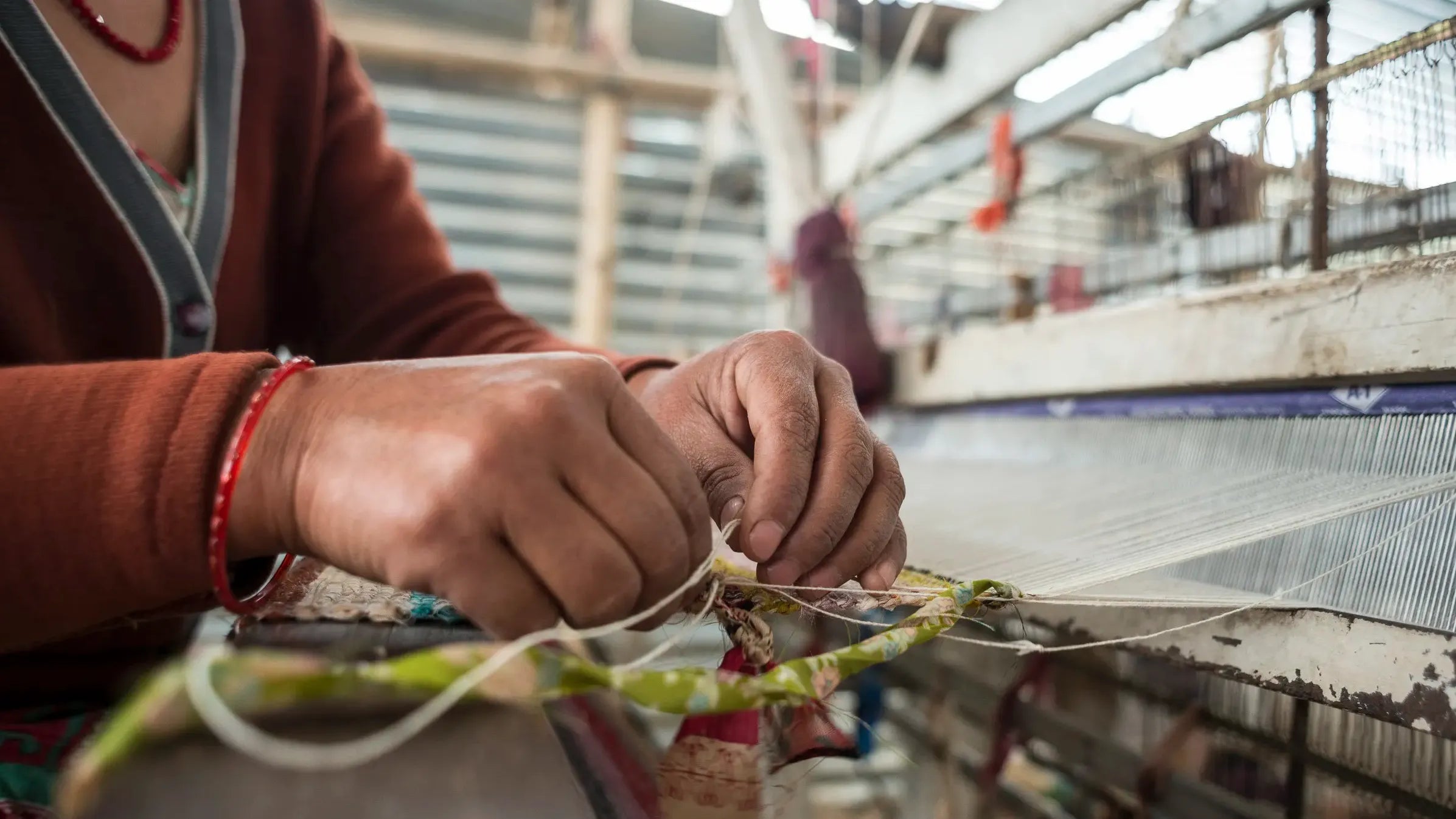
Frequently Asked Questions
Collapsible content
Sell Our Products
If you would like to buy our products in bulk at a discounted price and become a Local Women’s Handicrafts’ retailer, please visit our wholesale shop on Faire.com!
Shipping Information
- Retail Customers
For all retail orders sent from our US-based warehouse, we will ship your order to US locations within 3 business days.
- Wholesale and International Retail Customers
If you request a custom order or other order that requires shipping from Nepal, delivery usually takes between 7-12 days once the order is shipped from our warehouse in Nepal. Delays in customs can increase delivery time.
- Tax and duty charges
Please note that LWH is not responsible for additional taxes and customs charges that can apply depending on your country of destination. Make sure to provide a valid phone number for any order placed.
Returns & Exchanges
- Retail Customers
We value your business and want you to be completely satisfied with your purchase. If you are unsatisfied with your purchase for any reason, we offer refunds, exchanges, or credits for unused merchandise with original tags up to 90 days after purchase.
- For a Full Refund
We offer a full refund for unused returned merchandise. To be considered for a refund, the item must:Be returned within 30 days of receipt.Be unused. Items with damage from wear and tear or accidents during use are not typically eligible for a refund.Item must be returned with proof of purchase.
- Exchanges and Credits
Returns after 30 days will receive credit for the current selling price of the merchandise.Items returned without proof of purchase are available for exchange only.If the item was a gift, please include the gift receipt. Gifts are available for exchange or credit only.Local Women’s Handicrafts reserves the right to deny a refund, exchange, or credit if returned products do not meet requirements above.We recommend using a trackable return method, as Local Women’s Handicrafts cannot be responsible for items lost or stolen during shipment. Please allow up to three weeks processing time on returns and exchanges.Please email us or use our contact form for returns, refunds or exchanges with your order details.
Custom Orders
We manufacture custom orders once you have placed your order. Please contact us before placing an order to inquire about required production time. It can take up to 4 weeks for us to finish your order. If you have preferences regarding color, size, or material, please contact us via email after having placed your order and we’ll be happy to adjust the order according to your preferences.
- Submit your design idea: a photo or illustration of your idea, with exact measurements, materials, desired colors and total amount of pieces.
- Our minimum order quantity is 100 pieces.
- After confirming that we have received it, we will give you a quotation with price and we will produce a sample and send you the photos of the prototype for your approval. You can also request that we ship to you the sample(s).
- After receiving your approval, we will start the production. It usually takes up to 4 weeks for us to produce your order.
- When the products are ready, we will ship the package to your destination.
Submit your design idea: a photo or illustration of your idea, with exact measurements, materials, desired colors and total amount of pieces.Our minimum order quantity is 100 pieces.After confirming that we have received it, we will give you a quotation with price and we will produce a sample and send you the photos of the prototype for your approval. You can also request that we ship to you the sample(s).After receiving your approval, we will start the production. It usually takes up to 4 weeks for us to produce your order.When the products are ready, we will ship the package to your destination.
Payments Options
You may pay by credit card or via PayPal, Western Union, or direct transfer to our bank account. Please contact us if you wish to pay by any of these alternative methods.
How We Source Our Fibers
- Our Commitment to Transparency
It is very important to Local Women’s Handicrafts to find out exactly where all the materials come from that go into our products. It’s a big task to document each part of the raw material processing. It took us almost 12 years to setup the whole system and we are still learning.
- Natural Hemp
Hemp grows wild in Nepal, which means free of chemicals and nurtured with natural resources. When people focus on what is available locally and turn that into making a living, it doesn’t just help to boost the local economy but also it helps the people to be in harmony with nature. Hemp fiber is strong and durable. Hemp leaves and sap are used as a painkiller and sedative, and the roots are useful for burns and other wounds. The seeds are roasted and eaten to provide lots of good minerals and nutrients. Once the plant has reached maturity, it is harvested by hand and then left in the sun to dry for 1-2 weeks depending on the weather. The stems and branches are then soaked in water for one week after which they are dried in the sun again. Once the tough fiber has dried out completely, it is then bashed with a stick to fragment the fibers so they split more easily. The entire process of growing, harvesting, weaving and completing the products is done by hand. The raw materials make their way to our center. Then the Women take the materials and use a 1000-year-old technique to turn that raw materials into yarn which is dried in the sun. After that they make a role which can be sold as yarn through our Co-Operative store or used in the workshop for weaving. We use a 100-year-old loom which doesn’t need any electricity. This is very sustainable and eco-friendly for our environment. Once the fabrics are prepared we hand dye the materials, and then sew these into many beautiful backpacks.
- Cotton
Cotton is one of the world’s leading agricultural crops. It is plentiful and economically produced, making cotton products relatively inexpensive. Cotton is a soft, fluffy staple fiber that grows in a ball around the seeds of the cotton plants. The fiber is pure. After the cotton gets picked up by farmers, it is processed in different ways such as spun and made into yarn or thread or woven into beautiful textiles. Cotton has a number of distinguishing characteristics that make it such a popular fiber in the textile industry. The raw organic cotton we purchase comes from East Nepal and India. We are weaving handloom, fabric handloom as well as handcrafted. This is an eco-friendly and sustainable product relying on ancient and traditional techniques. These fabrics are all naturally dyed. It is hand washable as well as machine washable.
- Natural Dyes
We try to make all the dyes used in our products in our factory. We are working on dying all of our products with natural dye made from plants and leaves, and Azo Free powder. We dye cotton, hemp, wool and all different sorts of yarn. The artist has the control over how weak or strong are the dyes that they want to use. We also do printing and creative patterns in fabrics to give a different look to various textiles.
- Upcycled Materials
Fashion is one of the global industries that is responsible for massive pollution. People are buying and consuming products more than ever in our human history. We want to show that responsible consumption is possible. Local Women’s Handicrafts uses left-over and damaged fabrics that is discarded from factories, and often ends up in landfill. Our team visits factories and homes to collect fabric that was damaged in the manufacturing process. We also visit wealthy family homes to collect products that have never or barely been worn. We bring these fabrics and clothing to our center where our women wash and dry them. Then these materials are cut into pieces and woven on our traditional loom to make many different types of products such as yoga mats, meditation pillows, and blankets. The whole process is done organically and by hand. By working with recycled fabrics we are contributing to making the fashion industry more sustainable.
Product Care Guide
Keep your product looking great by following these care instructions. While we strive to make easily maintained products, nothing in this care guide guarantees that your product may not leak color or suffer damage during use, washing, drying, or ironing.
- Natural Hemp
Washing: Hand wash or machine wash on gentle cycle, opt for cold water as often as possible. Use lukewarm water when needed. Do not use bleach. As with any special fabrics, be sure to zip the zippers and button the buttons before washing. Zippers if left undone can abrade the fabric during the wash and dry cycles. Drying: Hemp fabric dries quickly–both in the dryer and when hung outside in the sun. Use the lowest possible dryer setting and a short cycle. Drying wet hemp items in high heat will shrink them very quickly.Ironing: Iron on low setting if needed.
- Upcycled Materials
Washing: Hand wash or machine wash on gentle cycle, opt for cold water as often as possible. Use lukewarm water when needed. Do not use bleach.Drying: We recommend air-dry only. Do not tumble dry. Our upcycled materials are mainly made from silk fabrics and other materials, silk is very delicate and the high temperatures of the tumble dryer can shrink or damage your silks.Ironing: Iron on low setting if needed.
- Cotton
Cotton is as easy to care for as it is comfortable. Follow these simple tips to learn how to care for cotton fabric and keep your cotton products looking and feeling beautiful, wash after wash.Washing: Wash in warm or cool water to prevent shrinking and fading. Wash with similar colors. Use hot water carefully, as washing cotton in hot water can cause it to shrink.Drying: Cotton fabrics can be air-dried or machine-dried using moderate to low heat. High heats can cause cotton fibers to shrink. Do not machine dry cotton mats or cushions. Air-dry only.Ironing: Iron on high heat while fabric is slightly damp. Use steam as needed. Note that ironing can usually be avoided by air-drying or removing immediately from the machine.
- Leather
To avoid fading and cracking, keep leather products out of the sun in a cool or dry place when not in use.Washing: Brush your leather down with a damp cloth. Do not use any soaps or general cleaners. Do not machine wash. Leather-specific cleaners can be applied to keep the leather clean, shiny, and crack-free.
- Cotton Suede
Washing: Brush your suede down with a damp cloth. Do not use any soaps or general cleaners. Do not machine wash.
- Cashmere Wool
Our handwoven cashmere scarves can be very fragile, so take extra care when handling and cleaning.Washing: Dry cleaning is the best option for cashmere products. If handwashing, use a cold-water bath with baby shampoo or mild detergent. Gently work the soap into the product and rinse thoroughly in cold water.Drying: Lay your cashmere items flat out of direct sunlight in their natural shape to air-dry. Never use the dryer!
